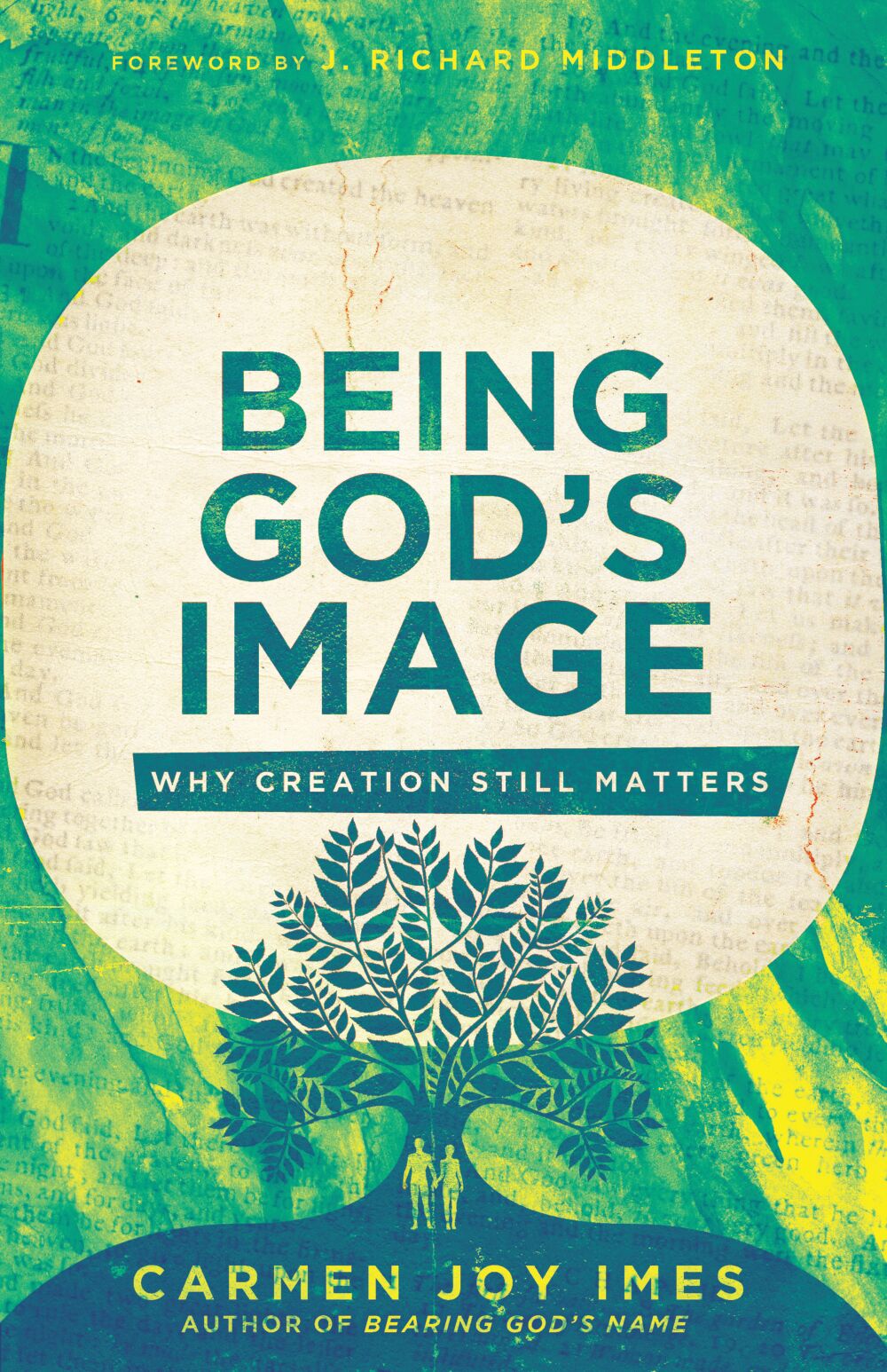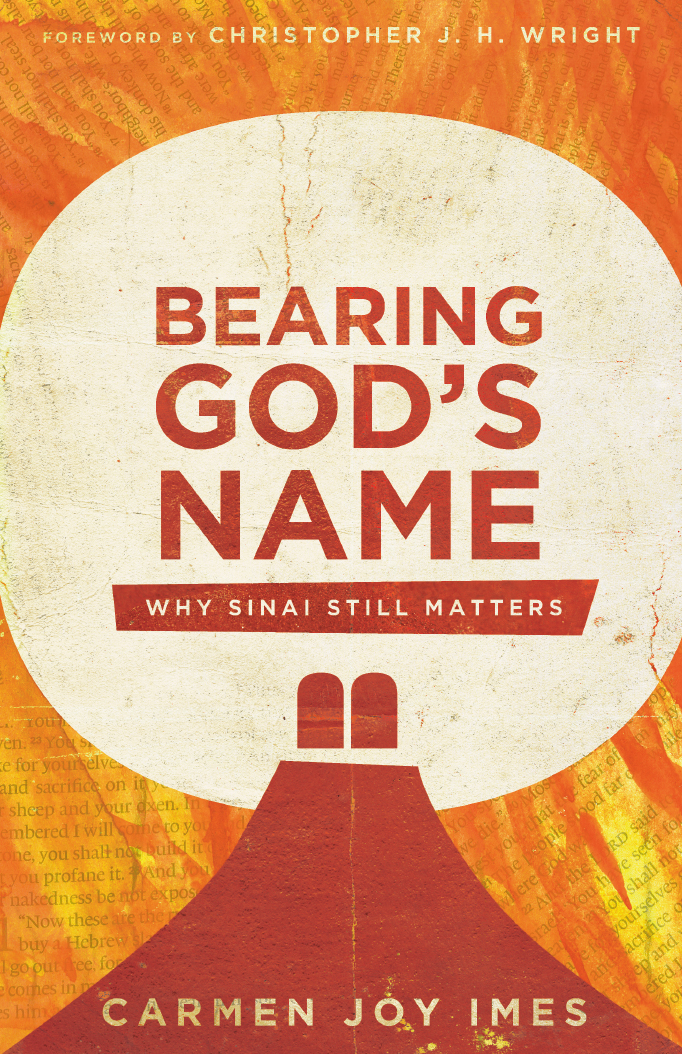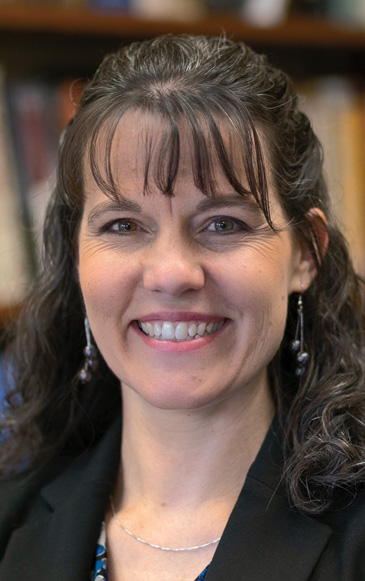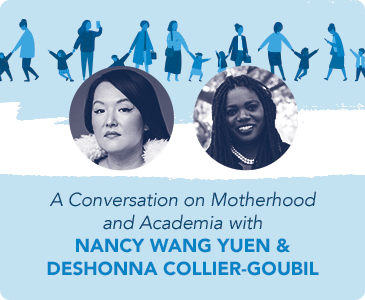Being God's Image as a Woman in the Academy and the Church
By Carmen Joy Imes, Author of Being God's Image
What is it like as a woman in the world of Biblical Studies?
My experience in the academy has been largely positive. Sure, I have stories I could tell, like the faculty member who met with me when I was in seminary and wondered out loud which of his male colleagues would be willing to supervise a woman in the doctoral program. Or the colleague who accidentally referred to the faculty in our department as "the guys" or the other colleague who effused after a faculty hymn sing how wonderful it was to hear "all the men's voices." In moments like that, I feel erased. Invisible. The field of theology and biblical studies has long been one in which the vast majority of professors are male. Although more women have joined their ranks, we are still by far the minority. If my colleagues occasionally misspeak, it's understandable.
On the whole, I have felt well received as a student, faculty candidate, and faculty member, whether in the classroom, in the boardroom, applying for grants, or presenting at conferences. When I landed a tenure-track position, I found it so encouraging that my new institution recognized the value of the work I had been doing, counted time toward tenure, and committed to paying me fairly.
I don't share this experience to minimize or silence the voices of the many women who have felt sidelined, ignored, harassed, or even abused in academic contexts. Inequities persist in some form at many institutions, and we must continue to be vigilant about ensuring that women are fairly treated, fairly compensated, and taken seriously.
However, the more difficult venue for me personally has been church.
Women's Roles in Church Ministry
I am fiercely committed to the church. I can't imagine life without the weekly rhythm of gathering with other believers to worship and be sent back into the world. I felt a call to ministry at a young age. At eight I offered my life to God as a missionary. At twelve I sensed an unmistakable call to missions. In my first year of college, I realized that God had gifted me as a teacher and first tried it out on adults in my home church. During my junior year, I had my first opportunity to teach a course at the college level under the supervision of my professor. I found such deep joy in doing so. For a long time, the desire to teach in the classroom made it relatively easy not to think about women's roles in church ministry. I didn't have to form a conclusion about what the Bible taught on that because I was called to the academy. Preaching and teaching required somewhat different skill sets; I was called to teach. In seminary, that began to shift. God began stirring in me a desire to invest more deeply in the church. A desire and willingness to preach began to flower in my soul. I began to realize that the gendered hierarchy present in many churches does not reflect the vision of Scripture for partnership in ministry between men and women.
My vocation is to study and teach the Bible. I do it all week long in the classroom, on podcasts, on YouTube, and by writing for the academy and for laypeople. But for most of my life, on Sundays, when I walk into the church service, I no longer have a voice. My place is in the pew, not on the platform. I listen to sermons rather than offer them.
On most Sundays, I have more theological education than the man in the pulpit. Depending on the passage, I may even have spent more hours poring over it, taking or teaching classes on it, reading about it, and considering its claims. At the same time, on any given Sunday, pastors around the world are sharing with their congregations what they have learned from my books or podcasts. To be clear, I'm not bitter about learning from men. I bring my journal to church every Sunday as a spiritual discipline. I find that the Spirit of God consistently meets me and speaks to me in some way through our services. But I, too, sense a call to bring the Word of God to the people of God. In my current context, and in most contexts where I have worshiped, it is either not allowed or it is so unusual that it would cause a bit of a stir.
Some of you are wondering, "Why not find another church?"
It's not so simple. A woman's role in the church is only one point of doctrine or practice that I care about. Many other things also matter to me. Finding a church in my neighborhood that has a high view of Scripture and allows both men and women to faithfully teach the Word is nearly impossible. For a variety of historical and cultural reasons, conservative theology usually goes hand in hand with a hierarchy between men and women. Conversely, the churches who tend to champion leadership roles for women are often more progressive in other areas as well, holding views that don't align with a high view of Scripture as our authority today. It doesn't have to be this way, but it often is.
So where does that leave me? As a woman trained in Biblical Studies with a lifetime of experience in ministry, I carry with me a longing for the full inclusion of women in every aspect of the church. For me it's not a matter of equal rights but of faithfully responding to the call of God and the empowerment of the Spirit. No one has a right to the pulpit. Only those called by God and equipped to rightly handle the Word of God should be entrusted with the ministry of preaching. Those of us who sense this calling from God but are prevented from responding carry ongoing grief.
In my current church context, women participate in many ways, including as worship leaders, deacons, Scripture readers, members of the prayer team, and service hosts. This last role includes giving announcements, leading in prayer, leading the liturgy, serving communion, and offering a public reflection or response to the sermon. I have loved the opportunity to minister to our congregation in this way. Our church benefits greatly from the thoughtful voices of many women.
Two weeks ago we were out of town on Sunday, but after the service the elder who preached sent me a copy of his sermon manuscript. On "Holy Name Sunday" he had based his sermon on my book about bearing God's name. He told the congregation about my work and how it had helped him. Greg supports the idea of of women preaching, but our church is still thinking through this issue. It was beautiful to read Greg's sermon but bittersweet for both of us. We're both left with the gnawing question: why is it okay for him to stand in the pulpit and talk about my research, but it's not okay for me to do so? What qualities or qualifications does he possess that I do not? What calling or empowerment does he have that I don't? What is the difference between us?
Testosterone seems an odd basis for ministry leadership.
Scripture's Testimony of Women in Church Leadership
It's true that we don't always understand God's ways. We're called to a life of obedience even when we haven't put it all together intellectually. But the practice of barring women from preaching seems to me to downplay Scripture's testimony of what women have contributed and will contribute to the church.
Drawing on the prophecy of Joel, Peter announced at Pentecost, "Your sons and daughters will prophesy . . . even on my servants, both men and women, I will pour out my Spirit in those days, and they will prophesy" (Acts 2:17-18 NIV).
Paul is often cited as the one who prohibits women from speaking in church gatherings, but Paul is also the one who says that women should have their heads covered when they prophesy (1 Cor 11:5, 13). Paul assumes that women will contribute to the church by using their voices to declare the Word of God to the people of God. If Paul assumes this, why don't we?
In Romans 16, Paul greets many women who were involved in ministry alongside him: Priscilla, Junia, Tryphena, Tryphosa, Persis, Julia, Mary. He says, "I commend to you our sister Phoebe, a deacon of the church in Cenchreae" (Rom 16:1). Most scholars believe that Phoebe was responsible for delivering Paul's letter to the church in Rome. As a benefactor, she had invested deeply in the church. As Paul's ambassador, her role would have included the public reading and interpretation of the letter. Just as Jesus entrusted the news of his resurrection to a woman, Mary Magdalene, so Paul entrusted his teaching for the church in Rome to a woman, Phoebe.
Besides Paul, the other place in Scripture that people point to in order to justify a gender hierarchy is Genesis 3:16. But should we look to the consequences of the fall for our paradigm rather than to God's vision in Genesis 1–2? In Genesis 1, women are clearly the image of God, ruling alongside men with no hierarchy between them. No human was told to rule another. In Genesis 2, Adam's lack is resolved through the provision of woman as an ally corresponding to him.
Why would we ground our vision of gender relations in the fractured disconnect resulting from sin rather than in the chapters that present to us the world as God designed it to flourish?
If Paul is right when he claims, "In Christ there is neither male nor female…" then why would we keep trying to preserve the fall?
To take seriously the testimony of Scripture means to lean into God's vision of gender partnerships in which both men and women rule creation side by side, ensuring the flourishing of humans as well as the rest of the created world (Gen 1:26-28). It's to recognize that God creates the first woman in Genesis 2 as the first man's suitable ally, not his minion (Gen 2:18). It's to notice the parade of faithful women who led, prophesied, judged, and offered theological reflection to the people of God throughout the Old and New Testaments. It's to read Paul's statements about women's silence in context of the rest of his letters, where it becomes abundantly clear that female followers of Jesus partner with male followers of Jesus in every conceivable role in ministry.
Being in the academy has made it possible for me to read more widely and study more deeply on the topic of women in ministry than I would have if I had pursued some other career. That privilege has enriched my faith, but it has also made my participation in church more difficult in some ways. I've come face to face with a robust vision of mutuality in ministry that I find compelling. And I'm left waiting in this liminal space in which my understanding of God's intentions for the church are partly unfulfilled.
I know I am not alone.
The history of the church is a story that includes innumerable women who God has called to participate in gospel ministry. Some of them were able to respond unhindered. Others encountered opposition, not because they were ungodly but because they were women.
I treasure their stories, and I long for a world where character, not chromosomes, will be the determining factor in whose voices we hear in church.
This article was edited on 3/20/23 for clarity per the author's request.
Join IVP Academic's Email List & Discover More Books on Women in Ministry
Keep Reading
A Conversation on Motherhood and Academia with Nancy Wang Yuen and Deshonna Collier-Goubil
In this interview, Power Women editors Nancy Wang Yuen and Deshonna Collier-Goubil discuss how they navigate the call to both the academy and motherhood as Christian women. If you've ever wanted to hear from women on a similar vocational journey who come from different backgrounds, academic disciplines, and stages of parenting and career, this interview will be refreshing.
Meet Our Women Authors
At InterVarsity Press, we are committed to elevating women's voices in publishing. And it's not just a trend—it's been a part of our mission since 1943, when the first book we published was written by a woman. IVP's diverse women authors are expert practitioners, gifted writers, and leading voices in the most important conversations happening today.








